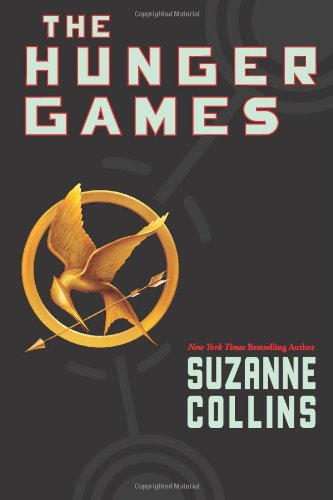All Nonfiction
- Bullying
- Books
- Academic
- Author Interviews
- Celebrity interviews
- College Articles
- College Essays
- Educator of the Year
- Heroes
- Interviews
- Memoir
- Personal Experience
- Sports
- Travel & Culture
All Opinions
- Bullying
- Current Events / Politics
- Discrimination
- Drugs / Alcohol / Smoking
- Entertainment / Celebrities
- Environment
- Love / Relationships
- Movies / Music / TV
- Pop Culture / Trends
- School / College
- Social Issues / Civics
- Spirituality / Religion
- Sports / Hobbies
All Hot Topics
- Bullying
- Community Service
- Environment
- Health
- Letters to the Editor
- Pride & Prejudice
- What Matters
- Back
Summer Guide
- Program Links
- Program Reviews
- Back
College Guide
- College Links
- College Reviews
- College Essays
- College Articles
- Back
The Hunger Games by Suzanne Collins
The Hunger Games
“Here’s some advice. Stay alive.” Some of the better counsel that Katniss, the main character, receives. Suzanne Collins truly had to follow her own counsel in the competitive world of writing children’s and adult fiction books, which she was inspired to do when she met James Promois, while working on a children’s television show on Kid’s WB. Her first series of books, “The Underland Chronicles,” quickly became bestsellers and were sold through bookstores internationally.
In “The Hunger Games,” the main characters live in a new era society where the government is centralized, owns advanced technology, and controls all aspects of citizens’ lives while the citizens themselves have access to only limited technology, and no weapons. Katniss Everdeen is one exception to this rule, foraging and hunting illegally in a fenced-off forest outside of their district, with her bow. Her and her friend Gale together work in this way to support their families and have been best friends since the they met at a young age. This fragile, yet steady life is shattered by Katniss’ name is drawn to combat in a massive arena battle between contestants in a televised event called The Hunger Games. They are forced to fight to the death until only one player is left, creating the plot twist that Katniss and another contestant from her district, Peeta Mellark, begin to acquire feelings for each other, and neither has the desire to kill the other.
The setting, as previously mentioned, is based on the new era conspiracy theory that many people consider possible, and some consider ideal. The ideology behind this is that complex and difficult lives are meaningless, and that society will progress until people function only as mindless slaves in society. Whether or not Suzanne Collins intended this as a warning, or prophetic article is unknown, and she has released no statement.
I, like so many other teens and adults worldwide, have a very high opinion of the idea of the book, and the clear, straightforward writing style of Collins. Her description of characters through narration combines well with the dialog she shares with the reader through the compelling and realistic characters to portray the situation well, creating the feeling that one is actually inside the book, fighting with the main characters.
My overall opinion on the book is that it was a well orchestrated, well written book that kept me enthralled throughout the book, and left an interested that lingered, and made me want to know more about the continued lives of the characters, without leaving a cliff, or dead-end conclusion. There is truly closure in the new, new world that Katniss has helped create.
Colins, Suzanne. The Hunger Games. Toronto: Scholastic, 2008. Print
ISBN 0439023483
Similar Articles
JOIN THE DISCUSSION
This article has 0 comments.

